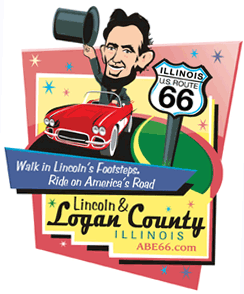|
 GTECH, which owns 80 percent of Northstar, poured hundreds of
thousands of dollars into a campaign fund that funneled $1.5 million
to Gov. Pat Quinn's 2010 campaign. GTECH, which owns 80 percent of Northstar, poured hundreds of
thousands of dollars into a campaign fund that funneled $1.5 million
to Gov. Pat Quinn's 2010 campaign.
Just six weeks before Election Day 2010, Quinn announced that
Northstar would receive the lucrative contract to manage the
lottery. He noted that his own administration's nine-member panel
had reviewed all of the competing applications and recommended Northstar.
Illinois Auditor General Bill Holland issued a scathing report last
year on the Quinn administration's handling of the selection
process. His audit found that it would have been virtually
impossible for the panelists to have thoroughly read, analyzed and
scored the thousands of pages of documents submitted by the
applicants in the few days given them. Pressed for time, some
panelists did not document their evaluations in writing until after
it was announced Northstar had been selected, the audit found.

In a separate review, The Franklin Center for Government & Public
Integrity found that Northstar's written proposal identified one of
the governor's panelists as its executive in charge of lottery
sales. Despite being named for a key position in one of the
proposals, panelist Victor Golden evaluated all bids, including Northstar's.
"It seems too bizarre to be real. I don't think I have any choice
but to request an audit commission hearing to look into this. They
need to answer publicly to how this could happen," said state Sen.
Bill Brady, R-Bloomington, upon learning of the matter after the
Franklin Center review. Brady said he is distressed Golden did not recuse himself.
Although Northstar did receive the contract, Golden, who was and
remains a state employee, was never made the director of lottery
sales by Northstar. The 45-year-old Homewood man now is deputy
lottery superintendent, a position that pays $109,248.
Under the lottery management contract, some state lottery workers
are managed by Northstar.
Intralot, a firm that also bid for the lottery management contract,
contends that even though Golden would have remained a state
employee, the conflict of interest was real because:
"It assured him of continued employment. Despite privatization of
the lottery, key employees could be replaced by employees of the new
private manager.
"Golden would gain the impressive 'Director of Sales' title and the
potential to transition to working directly for Northstar.
"If he became director of sales for Northstar, as a state employee,
he would be paid by the state but supervised and evaluated by
Northstar, giving him an incentive to curry favor with those who
would evaluate and supervise him."

Golden could not be reached for comment. But lottery spokesman Mike
Lang said it was not unethical for Golden to make a recommendation
on the proposals when his name was included in one of them.
Lang added the bottom line for evaluators was how much potential
revenue each proposal would generate for the state and that Golden
was in no way influenced by the inclusion of his name in the
Northstar proposal.
Others disagreed.
"This was a total sweetheart deal," said Byron Boothe, vice
president for government affairs at Interlot. "It was clear from the
beginning of the bidding that this is who state officials wanted to run the
lottery. We tried to compete for the contract, but they seemed to already have
their minds made up."
Other states are considering following suit by privatizing their
lottery management.
Pennsylvania Gov. Tom Corbett said last week he wants the Keystone
State to turn over its lottery to a private manager. New Jersey and
Michigan are evaluating privatization. And Washington state and Ohio
have reviewed the issue but are not pursuing it at this time.
Each state's review has one thing in common -- GTECH.
"That's our business, that's what we do," said Robert Vincent, GTECH's senior vice president for corporate affairs.

Although GTECH's business is gambling, it appears to be hedging its
own bets.
For example, in the two years leading up to the 2010 election, GTECH
gave $200,000 to the Democratic Governors Association -- and $200,000
to the Republican Governors Association.
[to top of second column] |

That was no anomaly. In the past eight years, the firm has given
$1.4 million to the two groups. It also has a history of hiring
top-flight lobbyists in various state capitals and lobbying for
business.
"These guys aren't driven by political philosophy," said Kent
Redfield, a political science professor at the University of
Illinois at Springfield and an expert on campaign finance issues. "They are driven by a desire to do business with the state.
That's the only reason a business gives to both political parties
-- it's a business expense. And they give indirectly to candidates
to obscure from the public and the press who they have given to."
During the 2010 election cycle, Illinois' Quinn received $1.52
million from the Democratic Governors Association.
"You better believe that someone let Pat Quinn know that some of
that money was coming from GTECH," speculated Boothe, Interlot's
vice president of government affairs.
But GTECH's Vincent said that's not the case, and that GTECH in no
way tries to influence what happens in state capitals with its
donations.
Just days before the lottery management proposals were to be
presented to the evaluation panel, GTECH formed the Northstar
consortium with its archrival Scientific Games.
Lottery spokesman Lang said 80 percent of Northstar is owned by
GTECH and 20 percent by Scientific Games.
"GTECH and Scientific Games are working together? They are enemies.
That's really unprecedented," said Richard McGowan, a finance
professor at Boston College who specializes in lottery issues.

But for Interlot's Boothe, the alliance is more than a bit
suspicious.
"Basically, between those two companies they control more than 90
percent of the instant ticket market in the United States," he said.
"By including Scientific Games, GTECH was able to ensure they
wouldn't submit a competing bid against them."
Brady, the state senator who was Quinn's GOP gubernatorial opponent
in 2010, said he was perplexed by the Quinn administration's
decision to allow two rivals to submit a bid together.
"If you were taking out bids for a road contract and the two major
road contractors created a 'consortium' days before the bids were
submitted, wouldn't that raise red flags for the administration to
rebid the contract?" Brady said. "Why didn't they do this when the
two lottery contractors created a consortium days before bidding on the lottery
management contract?"
But a Northstar spokeswoman said state rules allow for such a joint
proposal.
Representatives of the lottery, Northstar and GTECH refused Tuesday to
say how much Illinois would likely pay Northstar to manage the
lottery -- despite public money being involved.
But in 2010, the Chicago Sun Times reported the state would pay
Northstar a $15 million management fee and pay them as much as $300
million over the next five years as a percentage of new revenues
brought in.

"It's a really complicated formula that is used to determine how
much Northstar receives, but if you were to use the $300 million
figure, you would be in the ballpark," Illinois Lottery spokesman
Lang conceded.
Many of the usual efficiencies that come from privatization are off
the table for Northstar.
For example, Northstar's contract with the state requires it to
manage 80 state workers who had been working as lottery employees
before day-to-day management was privatized. These jobs cannot be
outsourced to the private sector.
"It pretty hard to remove politics from a lottery," Boston College's
McGowan said. "Look what happened to your last governor in Illinois.
He went to prison for trying to sell a U.S. Senate seat. Is it such a stretch to
think that the current governor might be influenced by campaign contributions?"
[Illinois
Statehouse News; By SCOTT REEDER]
Scott Reeder is the national investigative reporter for the
Franklin Center for Government and Public Integrity. |